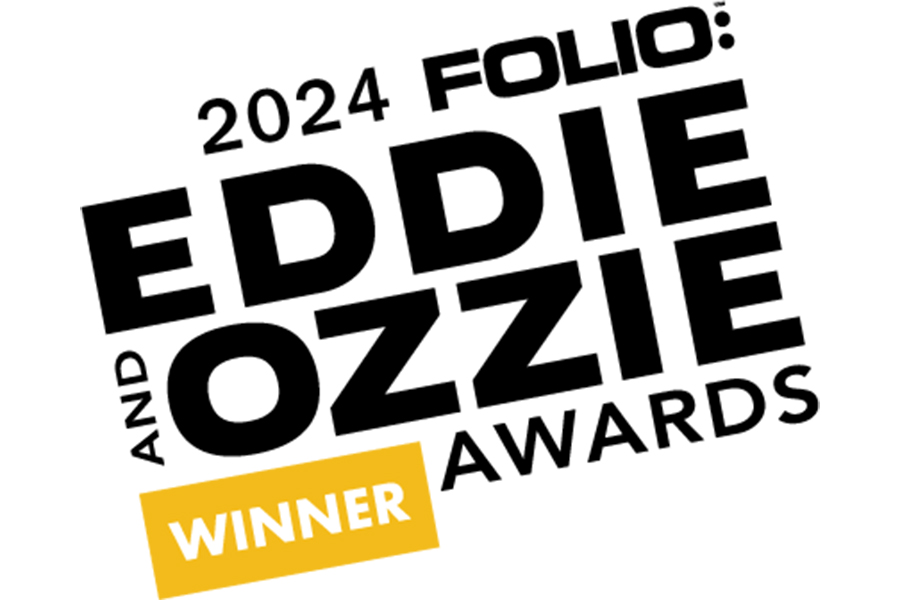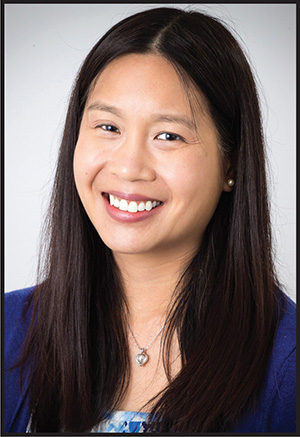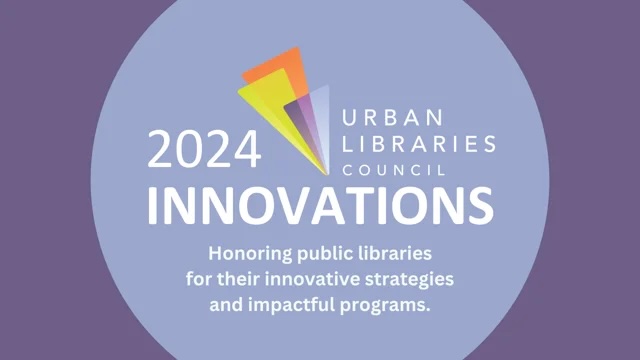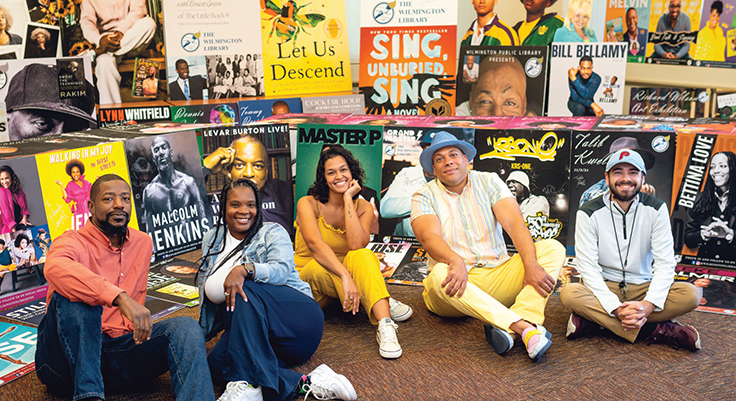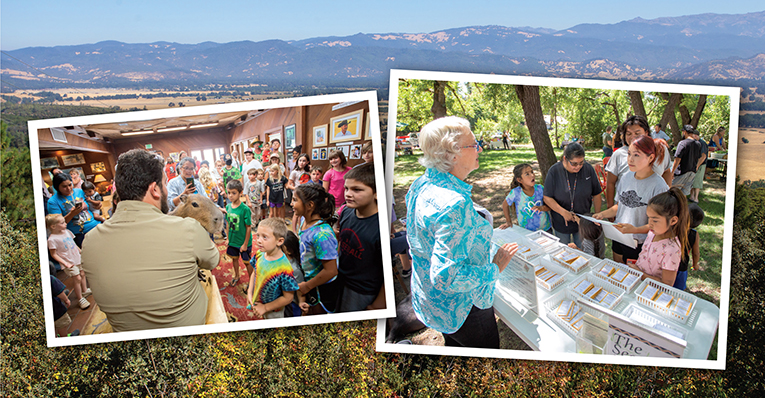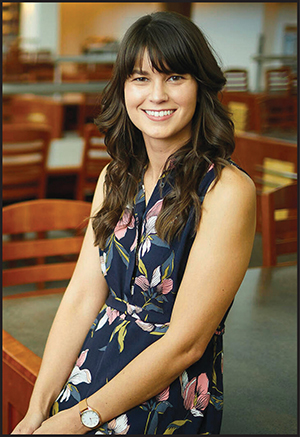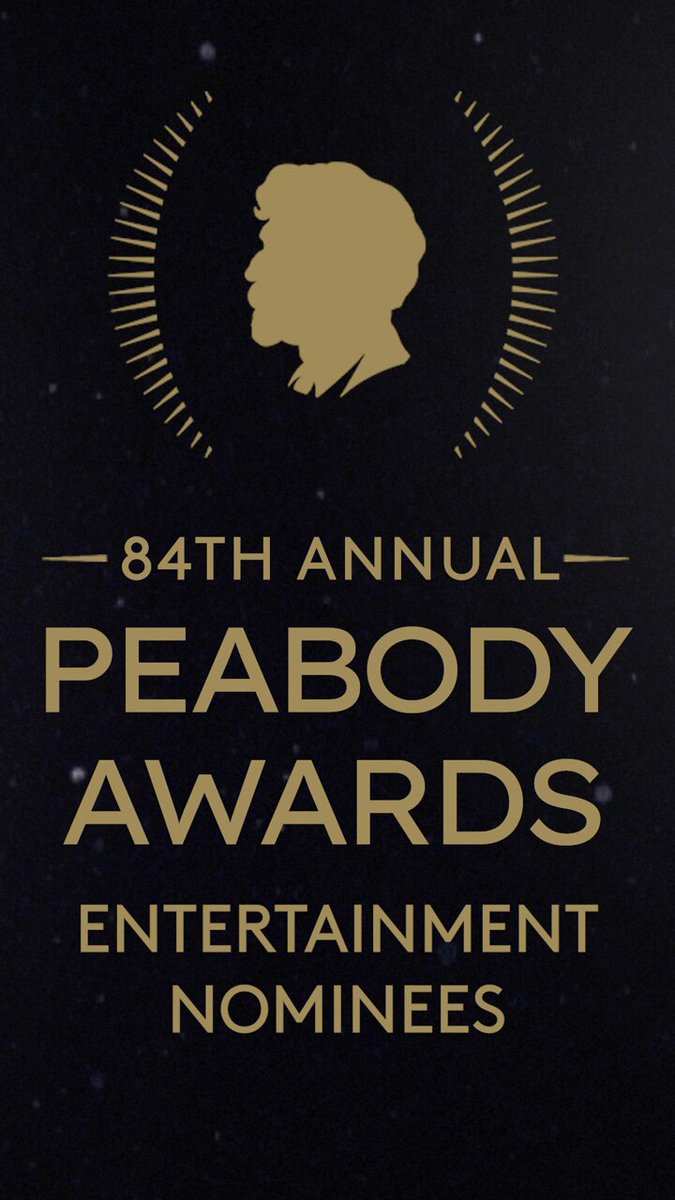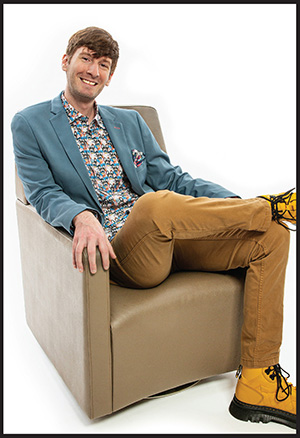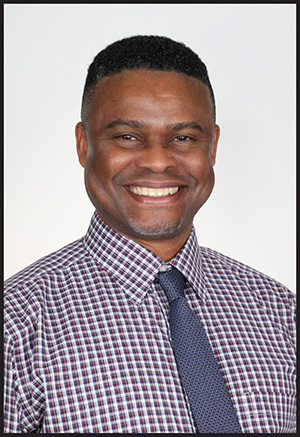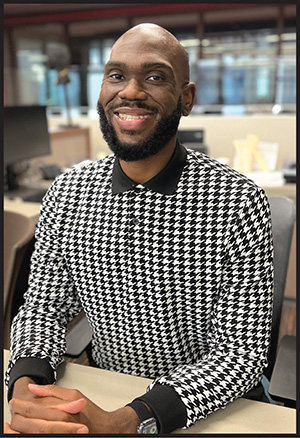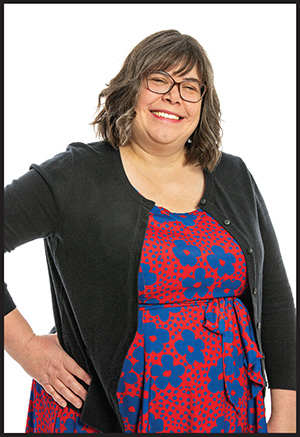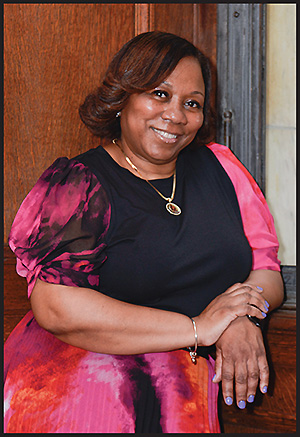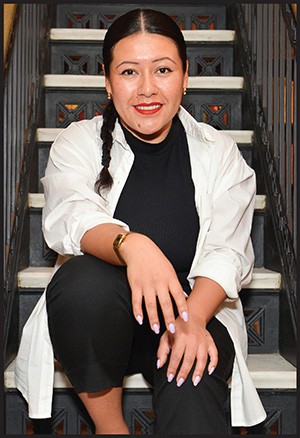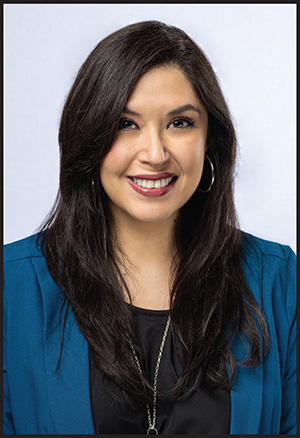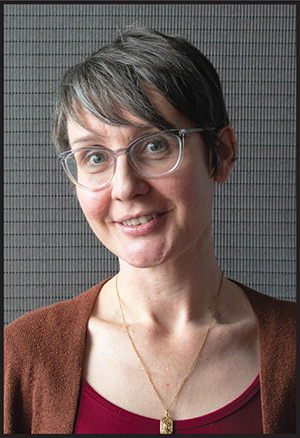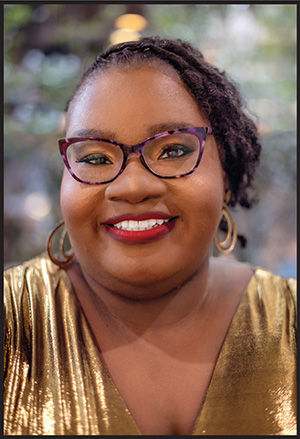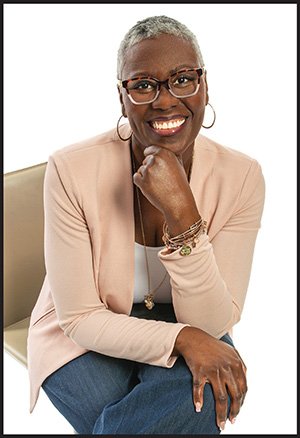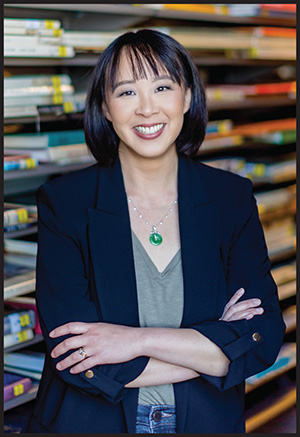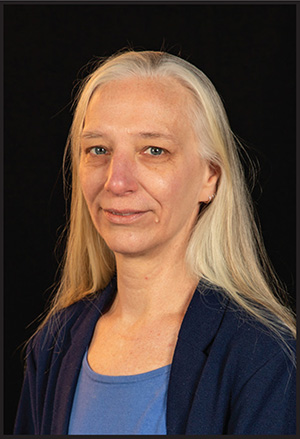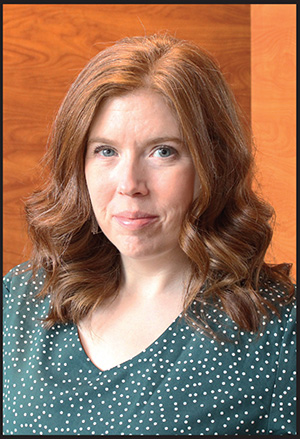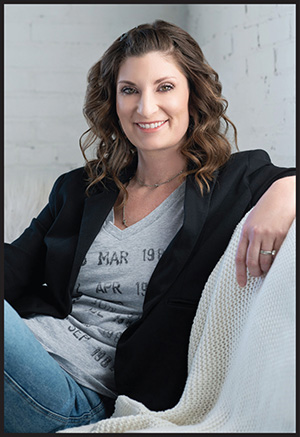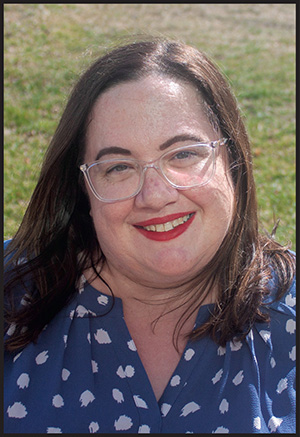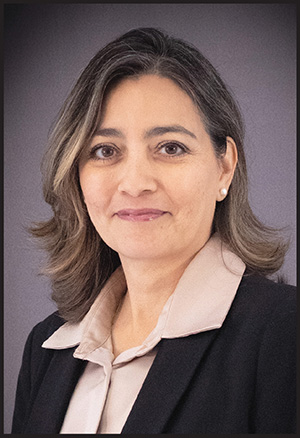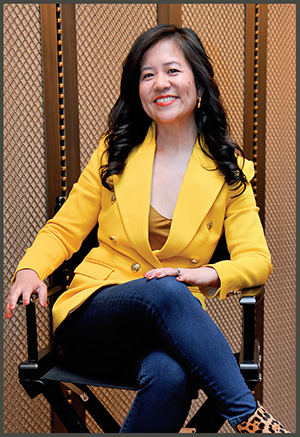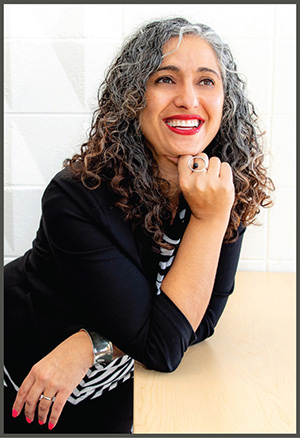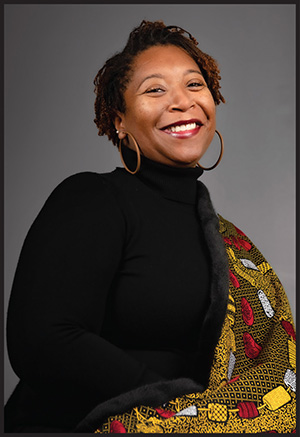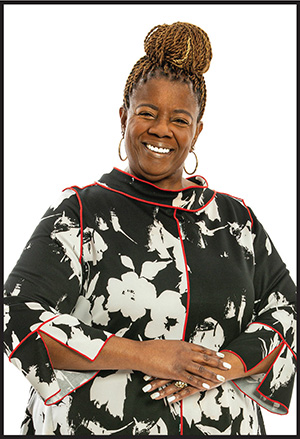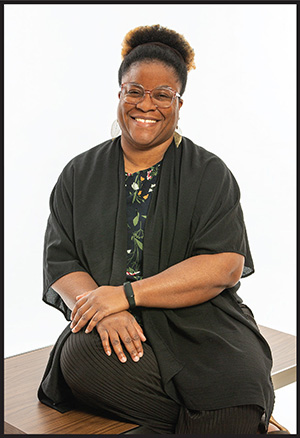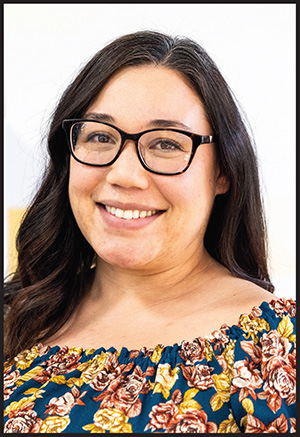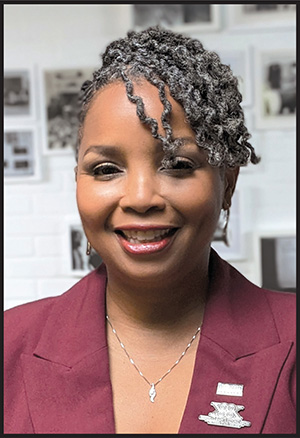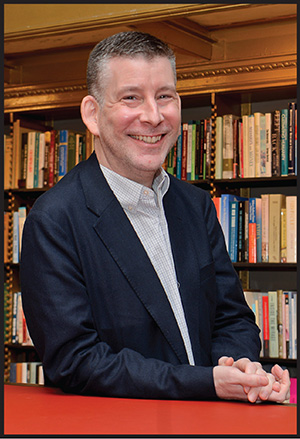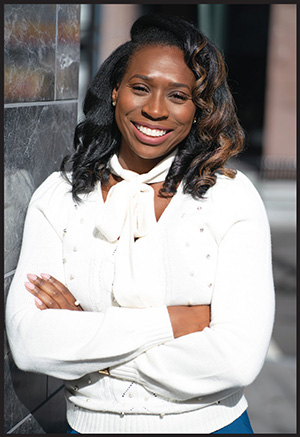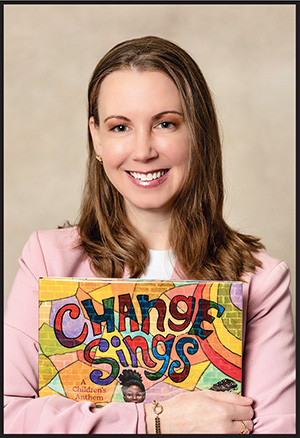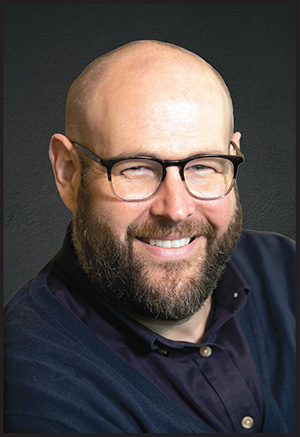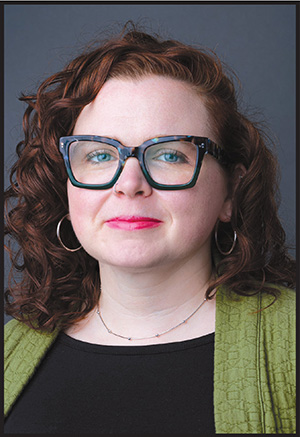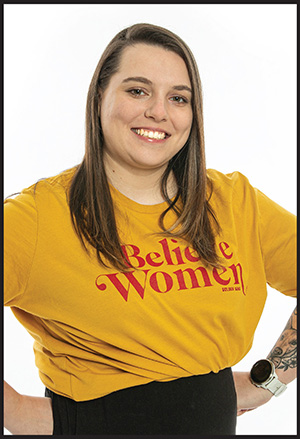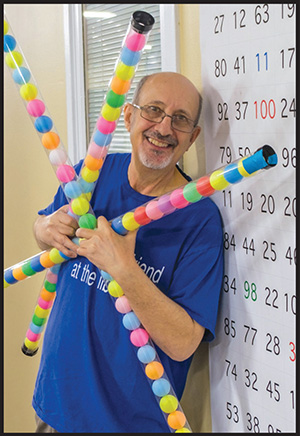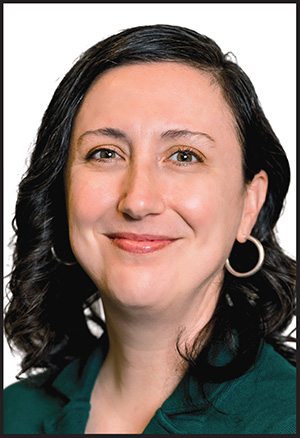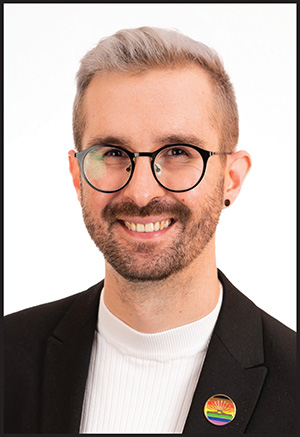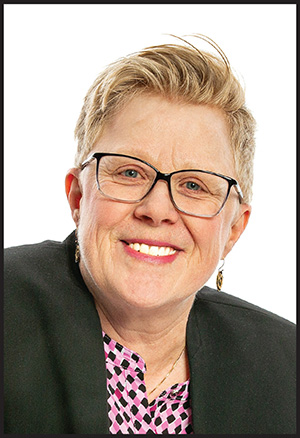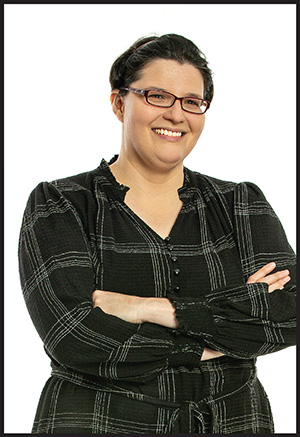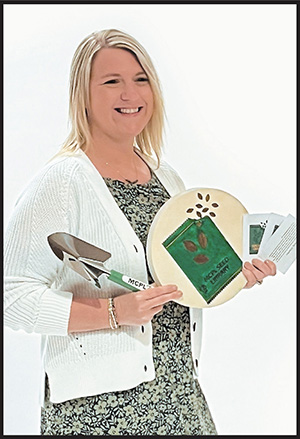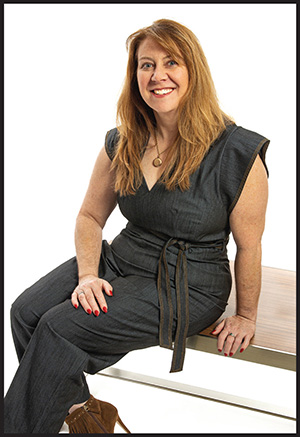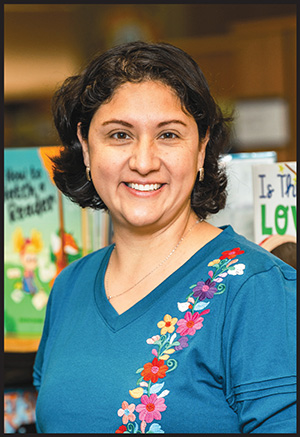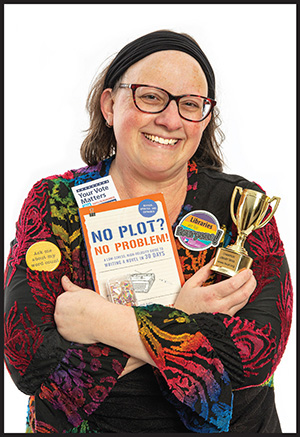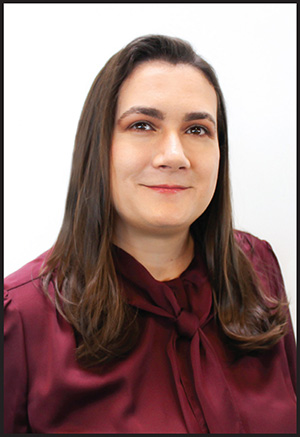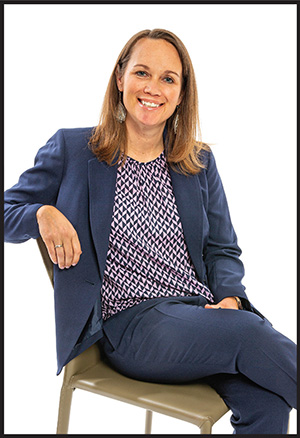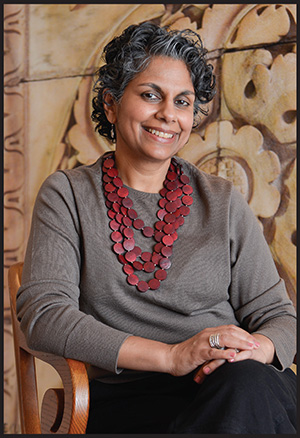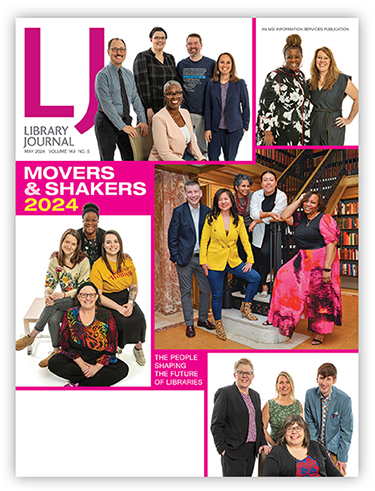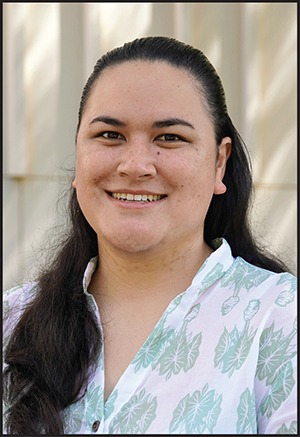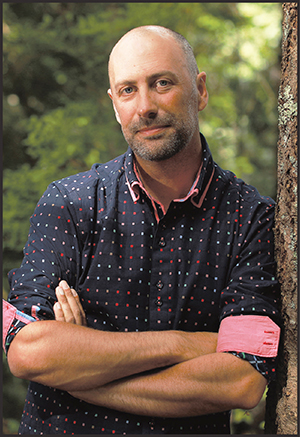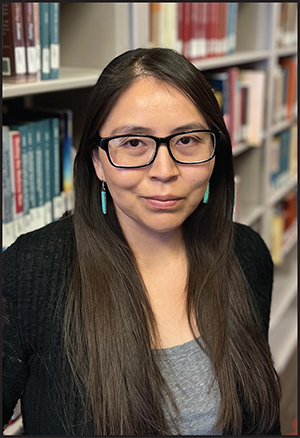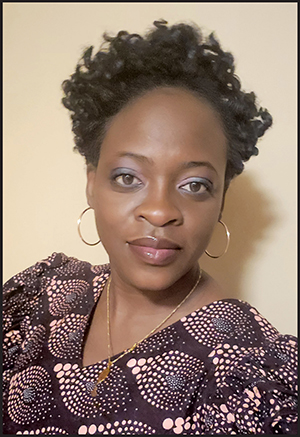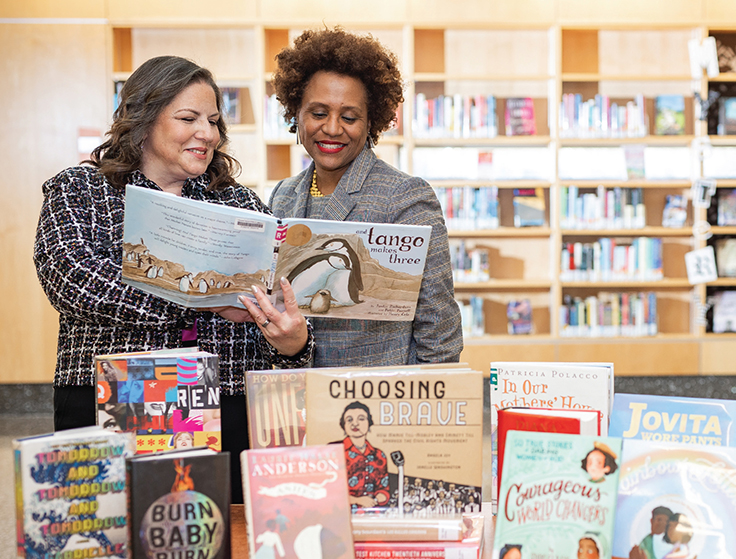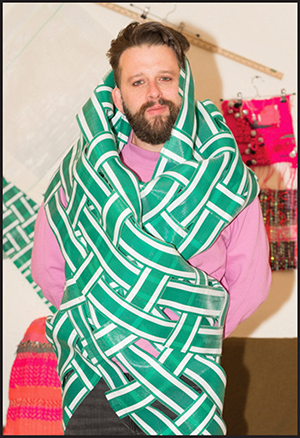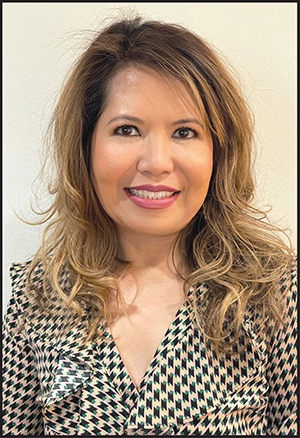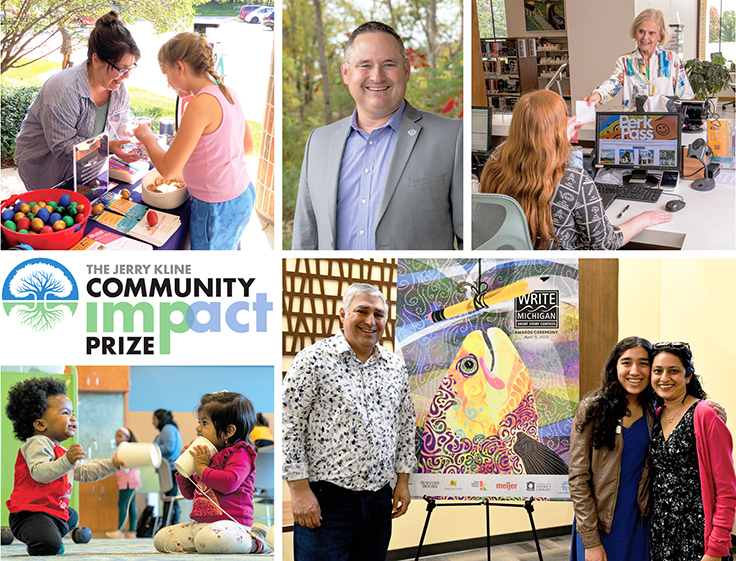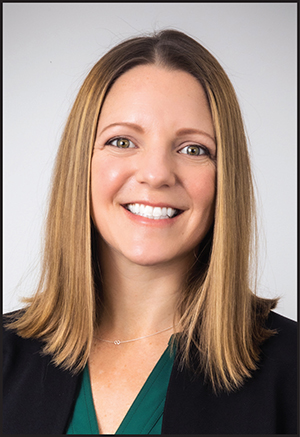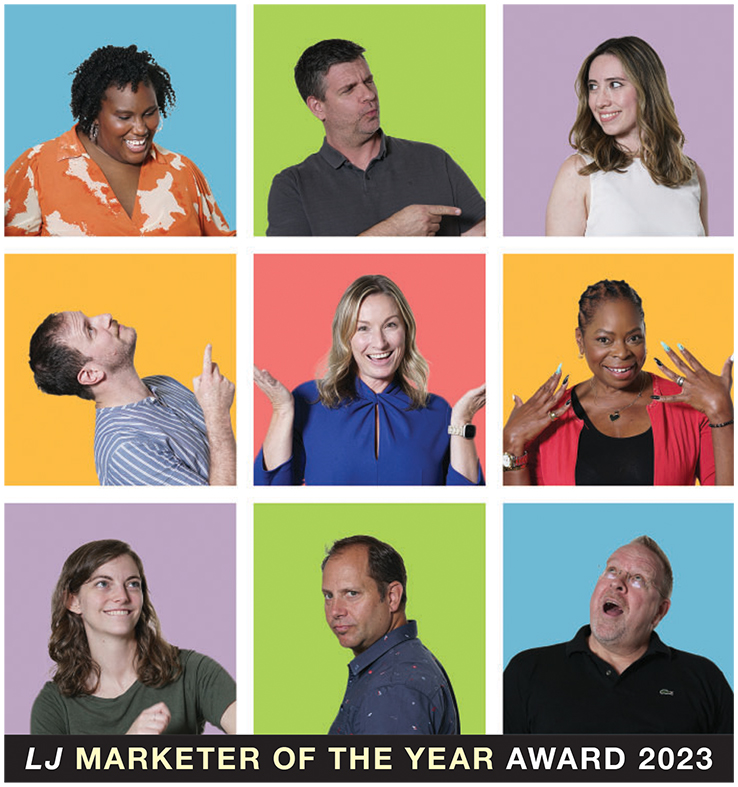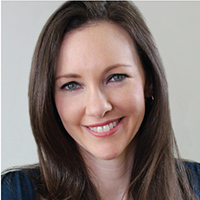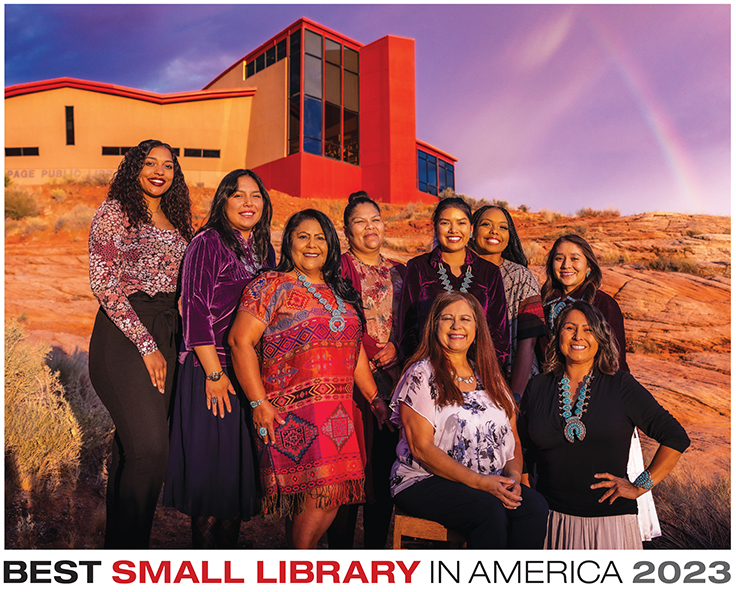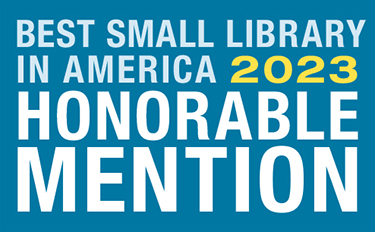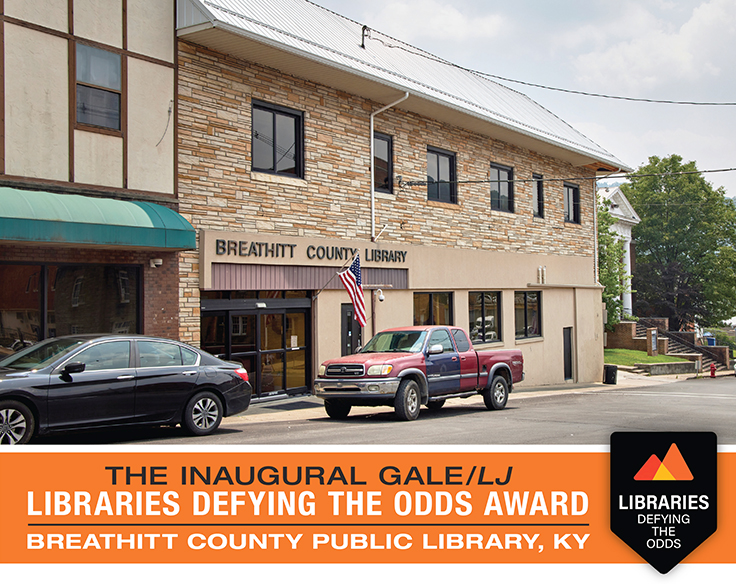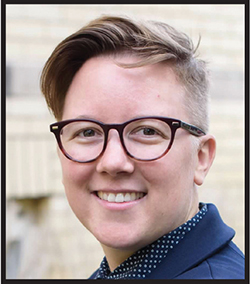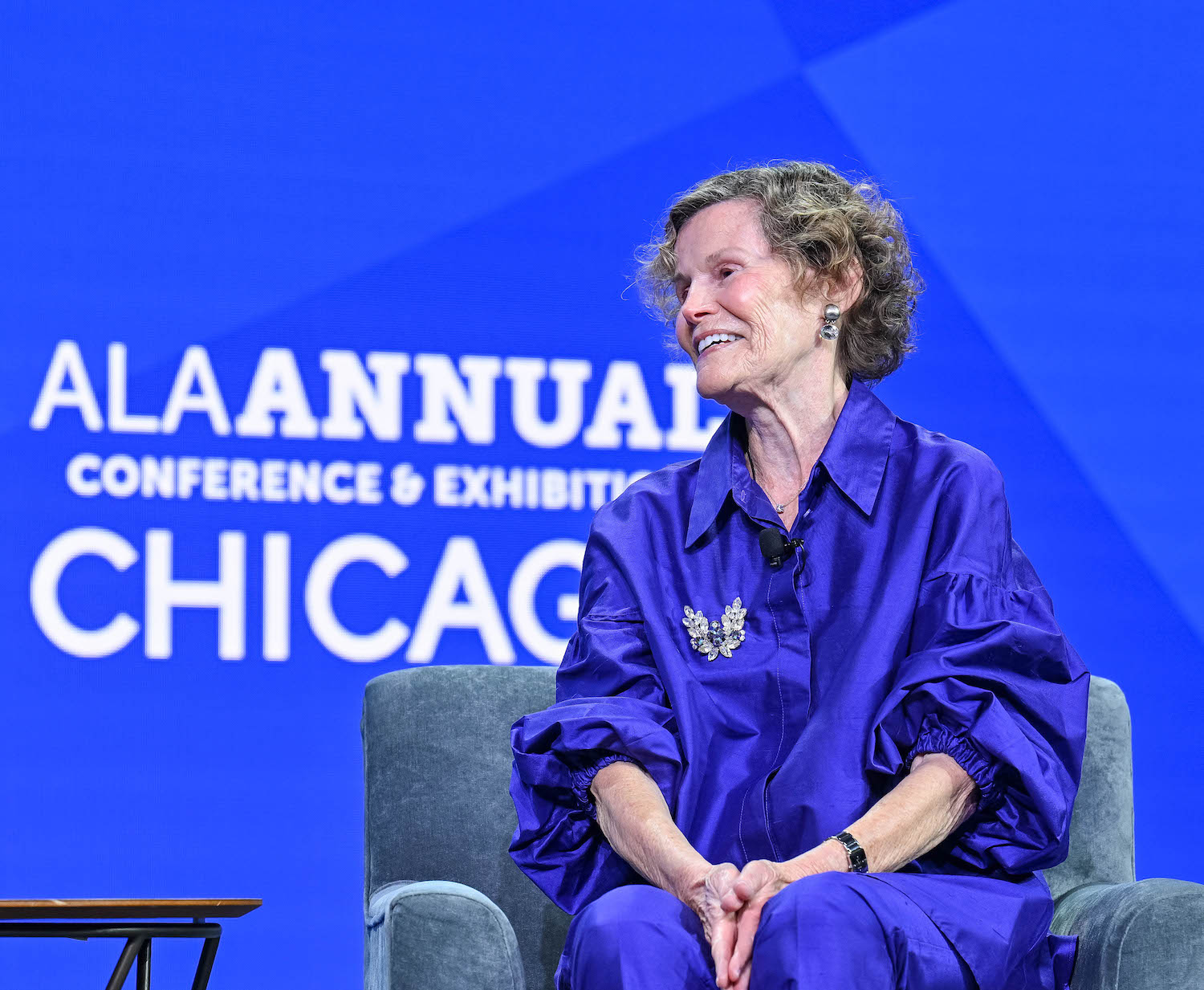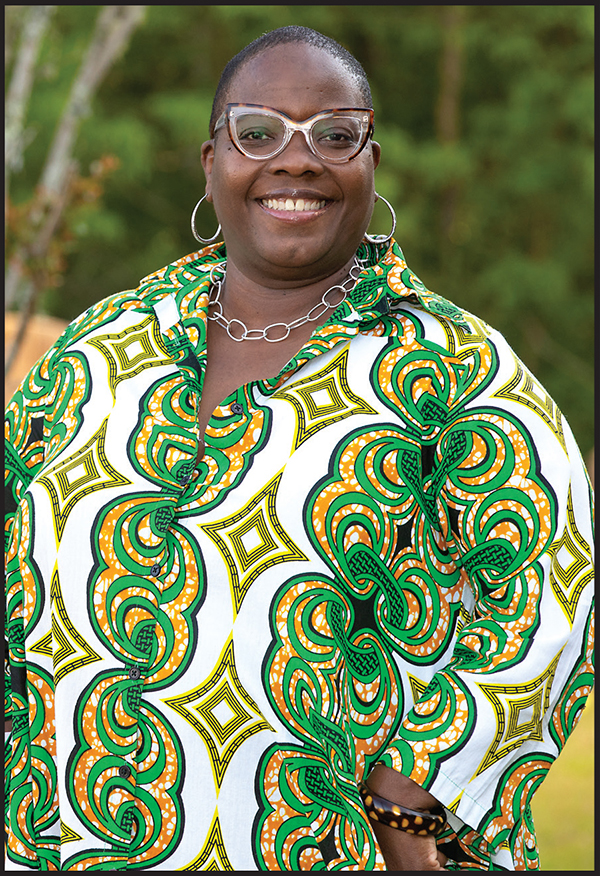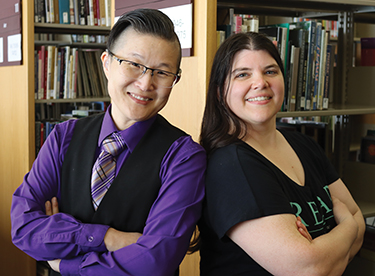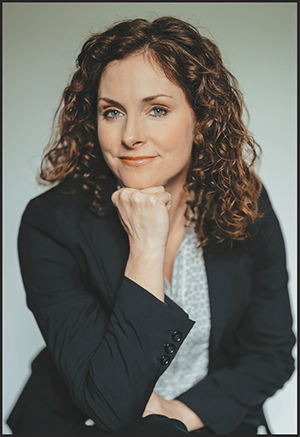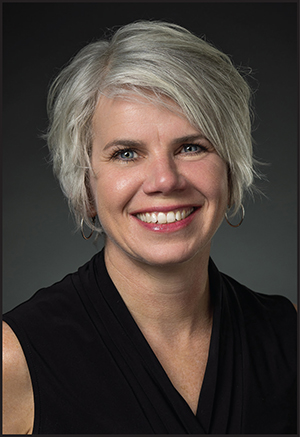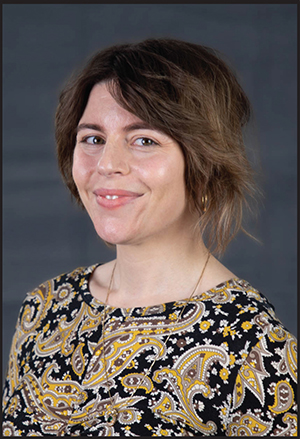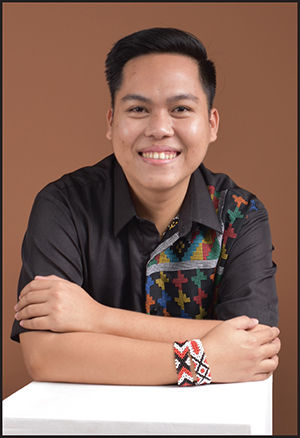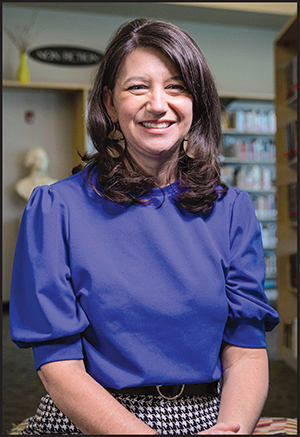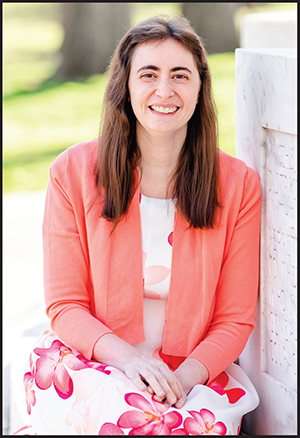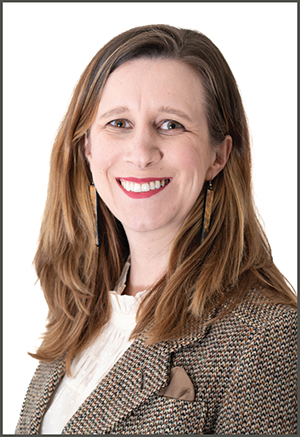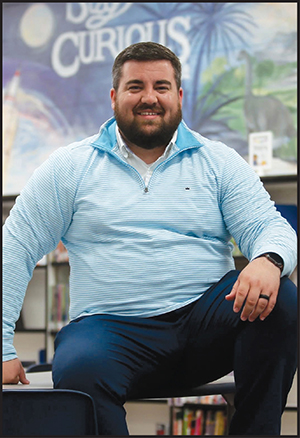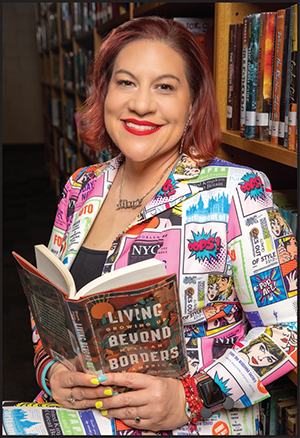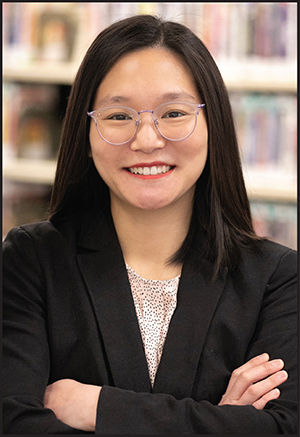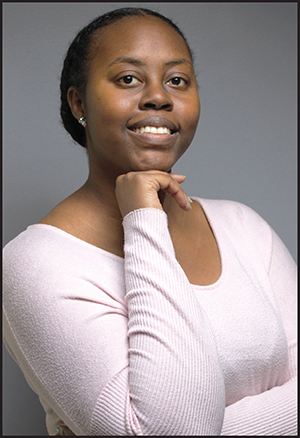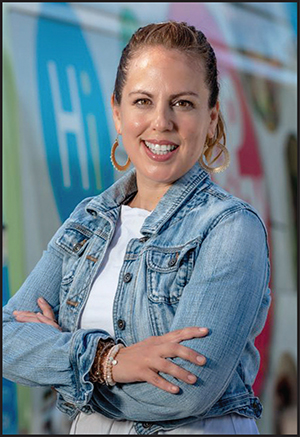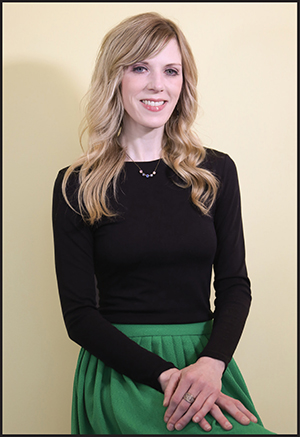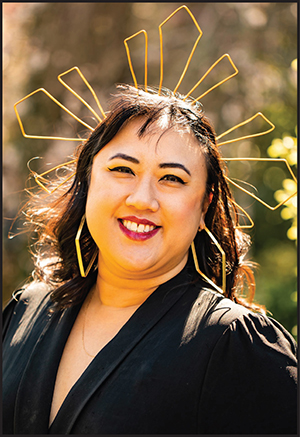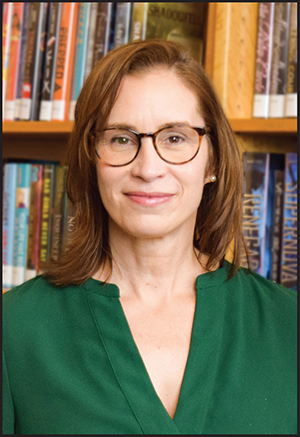Related
LJ has received an Eddie award for its February 2024 cover story “Hungry for Connection: Addressing Loneliness Through the Library,” by Editor-in-Chief Hallie Rich. In May, 2023, U.S. Surgeon General Dr. Vivek Murthy issued an advisory calling attention to loneliness, isolation, and a lack of connection as a public health crisis increasing the risk of mental health challenges and even premature death. LJ’s feature examined how library programs “can build the very relationships our nation’s public health experts say we most need to cultivate.”
Tarida Anantachai, director of inclusion and talent management for North Carolina State University Libraries, was named a 2024 Library Journal Mover & Shaker for her work rethinking how to approach recruitment and hiring through a more inclusive, diversity-focused approach. LJ recently spoke with Anantachai to learn more about her work in this area.
On October 3, the Urban Libraries Council (ULC) announced the six North American public libraries named as Top Innovators for 2024 as part of its annual Innovations Initiative.
Wilmington Public Library enlists community input alongside vibrant in-house marketing to build excitement around innovative events. San José Public Library, CA, and Worcester Public Library, MA, received honorable mentions.
The Eleanor Roosevelt Center is seeking nominations for its 2025 Banned Book Awards now through September 30, 2024.
For the work it has done to create a robust community hub through responsive services and strong partnerships, the Mendocino County Library Round Valley Branch, CA, is the recipient of LJ’s 2024 Best Small Library in America Award, sponsored by Ingram Library Services. Honorable mentions go to Northfield Public Library, MN, and Valley of the Tetons Library, ID.
My mentor used to say that we really only need to ask two questions when recruiting people: “Do you like to solve problems?” and “Do you like to help people?” If so, you would like working in the library! I tend to think that she’s right—and if the Library Journal 2024 Movers & Shakers are any indication, the opportunity to support community, exercise creativity, and advance learning are forces driving their work.
Chelsea Heinbach is the teaching and learning librarian at the University of Nevada, Las Vegas. She was named a 2023 Library Journal Mover & Shaker for her work (with Nimisha Bhat, Hailley Fargo, and Charissa Powell) in developing the blog and related podcast (created by Amber Sewell): LibParlor, a site dedicated to helping researchers find community resources and have a place to ask questions, discuss issues, and share expertise. She and the team received an Institute of Museum and Library Services grant to create LibParlor Online Learning (LPOL), a free, online curriculum devoted to research topics and how-tos. LJ recently followed up with her to learn more about her work.
On April 25, the Peabody Awards revealed the list of 68 nominations for 2023, chosen from a field of 1,100 entries. This year’s contenders include popular TV series such as The Bear, Bluey, and Reservation Dogs, documentaries about Judy Blume and Little Richard, children’s programming, newscasts—and two offerings from public libraries: Milwaukee Public Library’s social media streams in the interactive and immersive media category, and Borrowed and Banned, a 10-episode podcast from Brooklyn Public Library in the podcast/radio category.
After being named library director in 2020, Tyler Hahn dove into calling attention to the rural digital divide and advocating for the crucial role of rural librarians on the radio, in news outlets, and to state and federal elected officials.
Marlon Moore isn’t one to sit back and wait for patrons to ask for assistance. Instead, he focuses on creating opportunities—and his contributions have earned the Miami-Dade Public Library System eight National Association of Counties Awards from 2013 to 2023 for unique and impactful programs.
As an archivist and division manager at Auburn Avenue Research Library on African American Culture and History, Derek Mosley sees his work as an opportunity to preserve the stories of everyday people, ensuring that diverse records fill our cultural context and contributing to a more extensive portrait of African American life.
Sara Ring's work with the 23 Linked Data Things project grew out of conversations with colleagues at a conference a few years ago, where they discussed the lack of resources for librarians to keep up to date on technology. But it wasn’t until she and other coworkers formed a Wikidata Book Club that the discussion extended into how to help people—including themselves—learn about linked data.
Tara Somersall’s creativity serving children of all ages has made Yonkers Public Library a community leader in meeting kids’ needs and preparing them for a lifetime of reading.
When Alex Vancina joined the Helen Plum Library administration in 2017, plans to build a new $30 million facility had been put on hold—Vancina used the temporary setback as an opportunity to initiate a total revamp of the library’s IT and technical services departments.
Josselyn Atahualpa oversees adult education courses in literacy, English as a Second Language, and GED preparation. When she noticed a wave of asylum seekers coming to the library in early 2022, Atahaulpa alerted library leadership and pushed QPL to prioritize training on best practices for serving the community.
From her podcast, Allie the Librarian Booktalks, to her leadership with the Texas Library Association, Alexandra Cornejo demonstrates her unwavering commitment to intellectual freedom and promoting diverse voices in literature.
Meredith Crawford, Community Engagement Librarian with the Cedar Rapids Public Library, launched the Be Heard program at a local youth detention center with the goal of reducing recidivism by engaging students with literature and art.
As an American Library Association Emerging Leader, Nicollette Davis is always looking for ways to improve the library field. Through the We Here organization, she helps BIPOC library and information science professionals support each other in a welcoming space.
LaShawn Myles had not worked specifically with the disability community when she joined the Maryland State Library for the Blind and Print Disabled in 2018. Her work as an educator led her to libraries, where she quickly became a champion for visually impaired patrons, advocating for resources and finding ways to make materials more accessible.
Mychal Threets, whose earnest TikTok videos have logged millions of views, started out sharing stories that epitomized what he calls “library joy” to inspire people to visit their library. He ended up capturing hearts across social media.
Monnee Tong’s career has been shaped by her passion for social justice, which carries through to her work as supervising librarian at San Diego Public Library.
Visser's work on E-Rate policy and technology equity has been a game-changer for communities across the country, including in tribal libraries, where she helped improve access to broadband.
When Missouri’s Senate Bill 775 (SB 775) became law in 2022, calling for criminal penalties on educators who provide students with materials containing “explicit sexual material,” Melissa Corey recognized the severe implications for collection development and spearheaded a swift response to preserve compliant books in school libraries.
With a recent surge in book censorship efforts, Sarah DeMaria, cochair and president-elect of the Pennsylvania School Librarians Association’s (PSLA) Advocacy Committee, hears from school librarians statewide who have faced public attacks, reassignments, and chosen resignation due to flawed policies.
Jensen, a librarian by trade, worked in a public library for several years before joining the Book Riot team in 2013, where she developed her passion about the right to read and access to books.
What do graphic novels, Grimace shakes, and Barbenheimer have in common? For 2022 Kentucky School Librarian of the Year Tim Jones, they can be tools for helping students develop media literacy.
Lucy Podmore became chair of the Texas Association of School Librarians at a key time, just as HB 900—the controversial state bill that would require vendors to rate books for explicit content before selling them to school libraries—was on its way to becoming law.
After working in school, academic, and museum libraries, Jennie Pu landed her first public library job as Hoboken Public Library (HPL) director two and a half years ago, and has already made her mark as a champion of intellectual freedom.
Huda Shaltry carries a copy of the U.S. Constitution in her purse. Referring to the First Amendment comes in handy when the Boise librarian meets with members of the Idaho Legislature in her role as Legislative Chair of the Idaho Library Association.
While she wears numerous hats at North Carolina State University Libraries, Tarida Anantachai says that “my work is centered on people and supporting not just who they are as fellow colleagues, but especially who they are more personally, and their individual lived experiences.”
When she was in college, Dr. Shamella Cromartie had a job at a public library where leadership and others were Black, which encouraged her to pursue a career in the field. “It’s important to see people that look like you in these positions so that you know that you can do it, too,” she says.
As a native Memphian, Kim Jordan-Fluker has unwavering affection for her hometown. As Regional Manager for LINC/2-1-1, Memphis Public Libraries’ social service department, Jordan-Fluker’s team is the driving force in connecting the city’s most vulnerable residents with resources they often don’t know exist, let alone how to access.
Thanks to Nardia Cumberbatch’s leadership, Valencia College in Orlando, FL, was the first library in Florida (and second academic library overall) to complete the Sustainable Library Certification Program.
Jenay Dougherty aims to increase representation of Pacific Islanders in leadership roles, both within librarianship and in everyday life.
Dr. Tameka Bradley Hobbs, Regional Manager for Broward County Libraries’ African American Research Library and Cultural Center (AARLCC), recognizes the significance of historical awareness, particularly for the Black community. “As access to accurate Black history and diverse literature continues to be challenged in our state, AARLCC will continue to be a refuge to those seeking intellectual freedom and the freedom to read,” Hobbs says.
When Texas governor Greg Abbott began busing migrants from the southern U.S. border into New York City in 2022, Steven Mahoney at New York Public Library (NYPL) began visiting migrant shelters to provide on-site English class demonstrations and facilitate library card sign-ups. He discovered that many migrants lacked the necessary language skills or living stability to join NYPL’s existing core language program. So he launched a pilot program specifically for asylum seekers, increasing their learning through weekly English classes.
Dr. Aisha Johnson’s research, publication, and consulting on African American librarianship dates to her undergraduate years at Florida State, where—after growing up in a diverse area of south Florida—she found herself one of the few Black political science students.
Recognizing that young girls in groups are often outvoiced by male peers, Amanda Chacon—School Library Journal’s 2024 School Librarian of the Year—founded STEM GEMS, a club offering no-tech, low-tech, and high-tech challenges for girls.
As Head, Advanced Research Services and Digital Scholarship Librarian with the University of Victoria Libraries, Matt Huculak examines librarians’ role in scholarly communication, archiving, and collecting, while collaborating with other disciplines to bring that documentation to life.
In her scholarship, as in her instruction, Allison Jennings-Roche aims to seize opportunities to make people think critically about libraries as public institutions and about the information systems that impact their lives.
As the adult services librarian at the Curtis Memorial Library (CML) in Brunswick, ME, Hazel Onsrud is a passionate advocate for sustainable living, developing programming focused on sustainability to help her community discover how best to improve their environmental impacts.
As a reference manager for St. Louis County Library (SLCL), Phifer-Davis takes a proactive approach to outreach and programming. Under her watch, SLCL’s Reference by Mail for incarcerated individuals has grown from responding to fewer than 500 letters to about 2,600 in 2022.
Phil Shapiro is an enthusiastic champion of digital inclusion and outside-of-school learning, assisting youth and adults with public Linux computers at the Takoma Park Maryland Library (TPML) and singing the praises of open-source software through his YouTube channel.
“Librarians have the wit and grit to get things done,” says Scott Summers, a former high school English teacher and school librarian who now brings that experience to his work as assistant director of the Media and Education Technology Resource Center at NC State University’s College of Education.
Guided by the strategic goal to support local community needs with reflective services throughout the Santa Clara County Library District, Library Services Manager Clare Varesio spearheaded systemwide efforts to educate both library workers and the greater community on responses to the opioid overdose epidemic and mental health.
Isaiah West, who taught seventh-grade English before becoming a librarian, has a passion for working with young people. “Teens get a bad rap,” he says. “They can be moody, apathetic, chaotic, and more, but they are also authentic, inspiring, and funny.… They give me hope that society might have hope for a brighter and longer future.”
When Rebecca Wolfe noticed groups of adults with intellectual or developmental disabilities (IDD) come to her library, she saw an opportunity to make their library time more meaningful and engaging. She founded the monthly All Abilities Club, which offers crafts, games, literacy activities, music, and guest speakers to adults with IDD and caregivers.
Under Lauren Abner’s guidance, E-Rate participation levels and funding commitments to Kentucky libraries have risen to record highs, with the number of participating libraries in the state increasing from an average of 67 between 1998 and 2014 to an average of 99 each year from 2015 to 2022.
In 2023, Archibald’s work on two different projects generated enormous impact for the library and demonstrated that effective graphic design can make a difference in library programming.
Amber Gagliardi’s passion for gardening started as a child when she helped her grandfather plant seeds. She dreamed of starting a seed library at Middle Country Public Library for years before launching one in 2018 with 15 varieties of vegetable, herb, and flower seeds.
Becoming a library trustee wasn’t on Becky Keane’s radar until a neighbor gave her an earful about the shortcomings of her local board. Intrigued, Keane sought—and secured—appointment to the library board in fall 2019.
Working in libraries, Matthew Landon found himself drawn to the sensitive emotional landscape of local youth. He became certified as a Youth Mental Health First Aid Provider, then dove into changing the conversation around mental health.
When Elizabeth Muñoz-Rosas was presented with the opportunity to bring a traveling Smithsonian Institution exhibit on Dolores Huerta, a leading activist in the 1960s and ’70s farm workers movement, to her community with a nearly 60 percent Latinx population, she jumped at the chance.
Rather than outreach, Lissa Staley focuses on “inreach,” inviting local agencies into the library to assist patrons with mental health screenings, Medicaid and health insurance information, FAFSA applications, workforce support, family legal and emergency aid, GED classes, and small business mentoring.
Zachary Stier’s journey to find acceptance of his own learning disability and bipolar disorder diagnosis has led to an appreciation for how he and others learn and experience the world; now Stier provides children with a range of opportunities that spark joy, kindness, and wonder while nurturing reading skills and development.
Because older adults—who constitute 15 percent of the American population, projected to reach over 20 percent by 2030—are often overlooked in regular library programming, Jessica Young intentionally advocates for their inclusion at Yorba Linda Public Library. She mentors new librarians to do the same.
Heather McCarthy teaches in the way great leaders lead: by example. Through her global travels, McCarthy introduces her students to people and places that differ from their experiences in the Chicago suburbs.
For Siva Ramakrishnan, being director of Young Adult Programs and Services for New York Public Library (NYPL)—part of NYPL’s Tisch Youth Education Programs—means giving teenagers the resources they need to grow, whether that involves 3-D printers or a sense of community.
Over the past 22 years, Library Journal’s Movers & Shakers awards have offered a compelling snapshot of what’s up and coming in the library world, as well as how it has changed. Our 2024 Movers cohort represents a range of innovative, proactive, and supportive work; they are imaginative and kind and brave in a world that needs those qualities—and the results they produce—very much.
Shavonn Matsuda, head librarian at the University of Hawai‘i Maui College Library, was named a 2023 Library Journal Mover & Shaker for her efforts to incorporate traditional Hawaiian languages and cultures into the academic library and cataloging system to guide Hawaiian scholars and community members more efficiently and robustly. LJ recently followed up with her to learn more about her work.
Ry Moran, associate university librarian for reconciliation at the University of Victoria, British Columbia, was named a 2023 Library Journal Mover & Shaker for his work bringing the university’s reconciliation department to fruition and developing a podcast called Taapwaywin, which means “truth” or “speaking truthfully” in Michif, a language of the Métis people. LJ recently touched base with Moran to learn more about his work with truth and reconciliation, and how the podcast is going.
Rhiannon Sorrell, assistant professor and instruction and digital services librarian at the Kinyaa’áanii Charlie Benally Library at Diné College in Arizona, was named a 2023 Library Journal Mover & Shaker for her work preserving and digitizing Native films and storyteller narration. We recently spoke with Rhiannon to find out more about what she’s working on.
Willa Liburd Tavernier, research impact and open scholarship librarian at the Herman B. Wells Library at Indiana University–Bloomington, was named a 2023 Library Journal Mover & Shaker for her work facilitating open educational resources and the development of open pedagogy projects. We recently spoke with Tavernier to find out more about these projects and what’s next for her.
Virginia Library Association Executive Director Lisa Varga battles censorship attempts with a combination of hard facts and heart.
Steven Frost, associate chair of undergraduate studies for the Department of Media Studies at the University of Colorado–Boulder, was named a 2023 Library JournalMover & Shaker for their work collaborating with Boulder Public Library on its makerspace and Slay the Runway event. LJ recently spoke with Steven to learn more about these projects and what they’ve been up to since.
Regina Gong was named a 2023 LJ Mover & Shaker for her work developing a student-centered Open Educational Resources (OER) program at Michigan State University (MSU) Libraries to help make education more accessible and equitable, especially for underserved populations. Since being named a Mover, she’s moved on to a position that’s providing her a wider range of diversity, equity, and inclusion (DEI) opportunities.
The Art of Relationship Building: Kent District Library Wins 2023 Jerry Kline Community Impact Prize
Centering genuine relationships, along with an emphasis on community service and creative partnerships, has earned Kent District Library, MI, the 2023 Jerry Kline Community Impact Prize. Honorable mentions go to Henrico County Public Library, VA, and Kenosha Public Library, WI.
Susan Ivey was named one of Library Journal’s 2023 Movers & Shakers for her work making data resources more accessible for researchers at North Carolina State University in Raleigh. We recently reached out to learn more about what that role requires from her and what benefits it provides the university’s researchers.
Faced with a major post-lockdown attendance drop, the marketing team at Baltimore's Enoch Pratt Free Library is re-engaging patrons with creative, data-driven campaigns. Patchogue Medford Library, NY, received honorable mention.
Eileen Rhodes was named one of Library Journal’s 2021 Movers & Shakers for her work bringing Open Educational Resources to Capital Community College in Connecticut, enabling students who struggled with the cost of textbooks to continue pursuing their degree. We recently reached out to Rhodes and learned she’s currently the interim library director for Connecticut State Community College, a role that’s shifted her priorities and sent her in new directions.
Libraries are many things to their communities—and sometimes, they’re everything. The Page Public Library, on the northern Arizona border, is considered not just a library but the essential core of the community, and has been named LJ and Ingram's Best Small Library in America 2023.
Cody Library, WY, and Marathon Public Library, TX received honorable mentions for LJ and Ingram's Best Small Library in America 2023 award.
When a series of unanticipated hardships hit Breathitt County, KY, its library came forward to serve residents in large and small ways. For its critical community work now and looking ahead, Breathitt County Public Library is the recipient of LJ and Gale's inaugural Libraries Defying the Odds award. Charleston County Public Library, SC, is awarded honorable mention for its ongoing work to address food insecurity.
Emma Molls, currently the director of open research and publishing for the University of Minnesota Libraries, was named a 2021 Library Journal Mover & Shaker for their work with open research. LJ followed up with Molls to learn what they’ve been up to since then.
The 2023 American Library Association (ALA) Annual Conference, held at Chicago’s McCormick Place convention center, had a distinctly pre-pandemic feel. Attendance numbers were up, reflecting a growing willingness to gather face-to-face. This year saw 15,851 in-person guests—nearly twice the 8,023 who convened at last year’s Annual, in Washington, DC, 587 of them international attendees—and 369 Digital Experience participants, down from 834 in 2022.
Dr. Shannon Jones, director of libraries and professor at the Medical University of South Carolina–Charleston, was named a 2021 Library Journal Mover & Shaker for her significant commitment to mentoring other library workers in medical and academic librarianship, as well as creating a Medical Library Association book club focused on books discussing diversity, equity, and inclusion. LJ recently talked with her to learn what she’s been doing since then.
Alicia Deal and KayCee Choi nominated each other for the same reason—their advocacy for d/Deaf (Hard of Hearing/Deaf) culture. The two have spearheaded Dallas Public Library programming for National Deaf History Month in April; Deal and Choi created programs about major league baseball player William Hoy and author and activist Helen Keller, among others, which drew about 100 patrons total.
Lindsey Kimery stepped up her advocacy efforts as the Tennessee legislature crafted bills such as the Age Appropriate Materials Act of 2022 and an Obscenity and Pornography bill, each an attack on intellectual freedom. “Lindsey rallied librarians across the district and state to speak up and speak out on behalf of those who would be affected,” says nominator Alyssa Littrell, Metro Nashville Public Schools district librarian.
As chair of the Meridian Library District (MLD) Board of Trustees, Megan Larsen passionately defends the right to read. Like many libraries around the country, MLD faces attacks from a vocal minority seeking to restrict access to titles featuring diverse content, and recently, a group filed a petition attempting to dissolve the district. “Sometimes, the fight comes to you, like it or not,” Larsen says.
In Shavonn-Haevyn Matsuda's MLISc program at the University of Hawai‘i at Mānoa, she focused on examining and challenging inadequacies of access in information systems and library services. Later, after becoming head librarian at the University of Hawai‘i Maui College Library, Matsuda’s doctoral research investigated creating a system of information for Hawaiian archives and librarianship.
As senior librarian at San José Public Library, Lizzie Nolan manages programs, collections, and outreach for both the Children’s Room and teen space known as TeenHQ and has executed and evaluated yearlong literacy programs for the entire 26-branch system. In 2021, Nolan was tasked with leading San José’s Youth Commission, the official youth advisory group to the mayor and city council.
In 2015, as an offshoot of a student leadership congress where he was a delegate, Kevin Conrad Tansiongco founded the Magbasa Tayo (Let’s Read) Movement, an advocacy campaign promoting the importance of community reading centers and public libraries in the Philippines.
When Missouri’s Department of Elementary and Secondary Education stopped gathering data on school library collections, Amy Taylor found herself talking to others equally concerned with the loss of the information school libraries needed to advocate for funding. While public libraries have a legislative committee to lobby at the state level, no school library advocacy committee existed. Taylor stepped up to chair a task force studying how school librarians could raise awareness of what they do.
As the synagogue librarian for Temple Rodef Shalom Library and a children’s book consultant, Kusel says she wants to see more literary mirrors for children who are Jewish and offer windows to youth of different faiths to better understand Jewish beliefs and culture.
When Eryn Duffee moved to Washington from Tennessee in early 2021, she immediately jumped into leadership at the Washington Library Association, where she is working to transform the statewide school system.
Willa Liburd Tavernier was an attorney in the British Virgin Islands (BVI) when she entered the MA program at the University of Iowa, aiming to lead knowledge-management initiatives at her law firm. Toward the end of the program, hurricanes Irma and Maria ravaged the BVI. Unable to return, she applied to U.S. academic library residency programs and received an offer from Indiana University–Bloomington, where she’s been ever since.
As a librarian at Tazewell–New Tazewell Primary School, TN, Blake Hopper strives to keep the library space student-centered. One of his most ambitious initiatives involves challenging students to read 40 books per school year, which he promotes through family events. He’s made it a priority to have the library collection reflect the diverse student body as well.
As an eighth grade reading teacher in the Rio Grande Valley, Margarita Longoria noticed a lack of literacy events and diversity in curriculum offered for young adults. Most libraries and bookstores focused on elementary readers; Longoria felt that young adults deserved attention, too. She also knew that it was crucial for young people to see themselves in the books and authors they read, so she founded the Border Book Bash festival.
“Literacy justice is critical to social justice,” insists Amy Kyung-Eun Breslin, whose days are spent out in her community spearheading branch-style literacy programs at schools and other stakeholder venues—and busting through access barriers.
Growing up as a Black girl in a suburban neighborhood, Kymberlee Powe found it almost impossible to locate books reflecting her lived experience. Today Powe strives to support libraries in growing their evolving role as community hubs, training librarians to curate collections that reflect a range of people, stories, and experiences.
After completing her MLIS at the University of Rhode Island in 2014, Rhiannon Sorrell, a member of the Dineì (Navajo) nation, returned to reconnect with her community and deepen her work. As instruction and digital services librarian at Diné College—the first tribally governed and accredited college in the United States—Sorrell has taken on projects that dive deeply into Navajo language and culture.
As the lead instructor with the On the Road to Kindergarten mobile library, Irma Fernandez helps transform the lives of children in Howard County’s underserved communities through early literacy programs. The van visits all of the pre–K students at every elementary school in the county, bringing library resources and material to children of all backgrounds to help them get ready for kindergarten.
At the University of Victoria, Ry Moran has brought his experience to the libraries’ work of reconciliation, decolonization, and understanding Indigenous history, supporting students and faculty through a range of initiatives. The most recent of these is hosting and producing a podcast, Taapwaywin, which means “truth” or “speaking truthfully” in Michif, a language of the Métis people.
In addition to being a beloved story time leader and early childhood literacy advocate, Katie Clausen—“Miss Katie” to her youngest stakeholders—holds a professional certification in Adverse Childhood Experiences. When she realized that families in her community needed age-appropriate mental-health resources, she and colleague Elizabeth Forkan created a circulating collection of Resiliency Kits—books, games, activities, and information for adults and children on themes of grief and loss, divorce, addiction, emotions, and bullying.
Jaena Rae Cabrera has a “not-so-secret agenda,” according to Alan Wong, learning and instruction librarian at San Francisco Public Library (SFPL). “She wants to increase Filipino American visibility and representation at [SFPL],” he says. Cabrera’s efforts include joining forces with Pilipinx American Library, a mobile, noncirculating collection and programming platform, on two events at the Public Knowledge project, a collaboration with the San Francisco Museum of Modern Art, in 2018 and 2019.
For researchers at North Carolina State University, computing and data resources are plentiful. However, finding and employing the right tools for a particular project can be challenging, whether for a researcher still in the planning or discovery phases of a project or an administrator. Susan Ivey’s mission as director of the new Research Facilitation Service: Cut through that confusion.
The Librarian Parlor (aka LibParlor), which Chelsea Heinbach cofounded and operates with Nimisha Bhat, Hailley Fargo, and Charissa Powell, is a platform for library workers and LIS students to ask questions, discuss issues, and share expertise on developing, pursuing, and publishing library research. The project was conceived when Heinbach attended her first large library conference and encountered likeminded library workers who also felt the need for a centralized meeting place.
Lydia Lopez’s work opened access to services for Miami-Dade county residents who might not otherwise have had them—lifesaving medical tests and vaccines, entry into one’s home following a hurricane or fire, or even just the opportunity to reserve government-owned tennis courts—all because they don’t meet the requirements to obtain a driver’s license or state-issued identification.
Christopher Brannon and George Williams are go-to experts helping the free, open source Koha integrated library system (ILS) grow and thrive in U.S. libraries. Both have been active leaders in the koha-US user group: In addition to their work on committees and regular appearances as presenters and panelists at conferences and events, Brannon is the organization’s current president, and Williams is a past president.
ALREADY A SUBSCRIBER? LOG IN
We are currently offering this content for free. Sign up now to activate your personal profile, where you can save articles for future viewing
